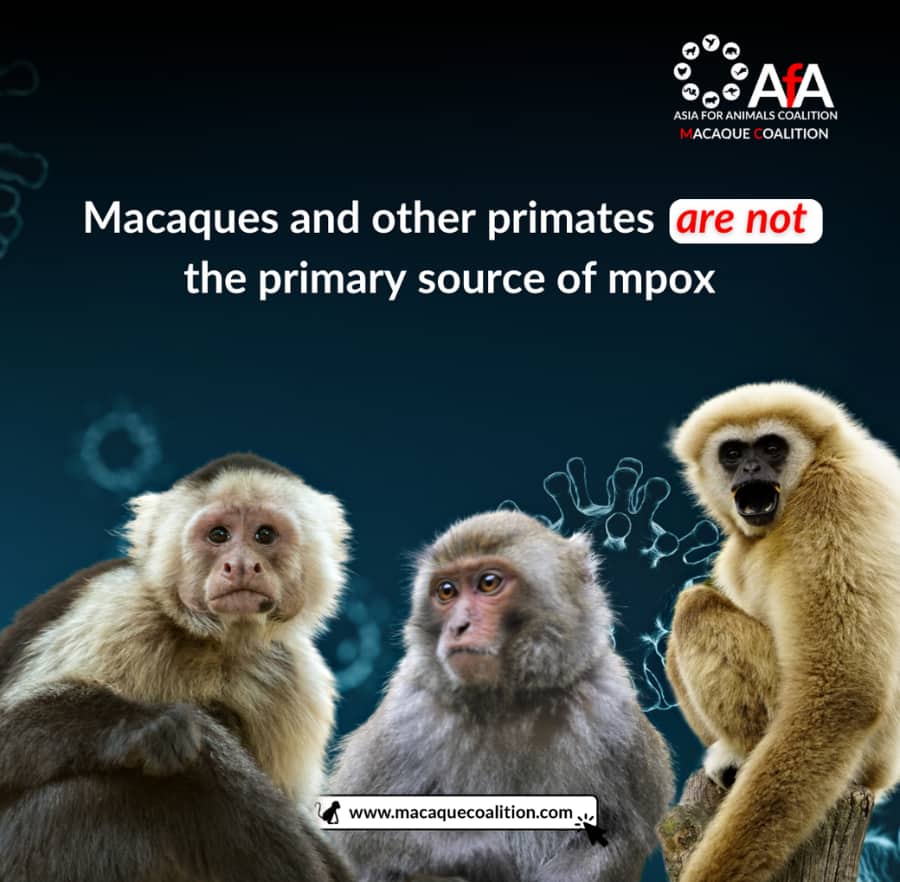
In the wake of the ongoing Monkeypox (now termed mpox) outbreak, it is critical to clarify misconceptions about its transmission and promote healthy coexistence between humans and primates. It’s important to know that neither macaques nor other nonhuman primates are the primary source of this virus.
Mpox primarily spreads through close, direct contact with infected humans or through contaminated materials – not via aerosols from macaques or other animals. Misunderstanding about this can fuel hostility towards monkeys, causing an increase in negative interactions between humans and other animals.
FAQ:
1. Why is it called „Monkeypox“?
The name „Monkeypox“ originated when the virus was first discovered in laboratory monkeys in 1958. However, studies have shown that the virus primarily affects rodents, and nonhuman primates are not the main reservoirs. The earliest human cases were reported in 1970, primarily in Central Africa, linking the virus to its animal hosts, which are mainly small mammals.
2. Why was the name changed from Monkeypox to mpox?
The World Health Organization (WHO) renamed the virus mpox in 2022 to reduce the stigma and discrimination linked to the original name. The term „Monkeypox“ unfairly associated nonhuman primates with the disease, leading to misplaced blame. In reality, humans are the primary source of transmission.
3. How is mpox transmitted?
Mpox spreads through close, skin-to-skin contact with an infected person, body fluids, or contaminated objects like clothing or bedding. It’s not airborne and does not spread easily through monkeys or other animals.
4. Can I get mpox from monkeys?
While animals, including primates, can contract mpox, the virus primarily spreads between humans. The risk of transmission from monkeys to humans is minimal, but to protect both humans and wildlife, it’s best to avoid feeding or close contact with wild primates.
5. How can we safely coexist with macaques?
Maintain a safe distance, DO NOT feed wild monkeys, and respect their natural behaviors. According to The IUCN SSC Primate Specialist Group’s Section on Human-Primate Interactions (SHPI) guidelines, minimizing human-primate interactions reduces conflict and the risk of disease transmission.
6. What is being done to prevent mpox outbreaks?
Global health organizations like the WHO and CDC have launched vaccination programs and are monitoring ongoing outbreaks. Public health messaging emphasizes prevention through vaccines and reducing close human-to-human contact in high-risk communities.
ASIA FOR ANIMALS COALITION (AfA)
www.asiaforanimals.com









